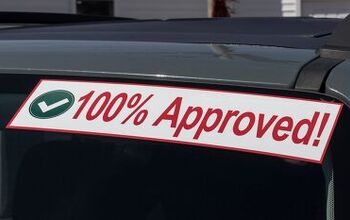Daily Podcast: CAFE Culture
The list of CAFE violators ( in PDF form) reads like a valet’s to-do list: Mercedes, Porsche, Ferrari, Maserati. These firms pay CAFE fines because, well, they can. CAFE fines are calculated by multiplying each tenth of a mile per gallon of average non-compliance by $5.50, then multiplying that dollar amount by the number of vehicles sold. As a result, luxury firms pay the highest fines when they try to go mass market: Merecedes paid about $30 million for 2007. But if CAFE is already weighted to let small companies off the hook, why are we hearing about new rules which seem to relax standards for firms selling fewer than 400k vehicles per term? Aren’t the regular loopholes enough?
The answer takes a little digging to find, but it explains everything. Proposed rules for the 2011-2015 standard ( PDF) reveal that
EPCA authorizes increasing the civil penalty up to $10.00, exclusive of inflationary adjustments, if NHTSA decides that the increase in the penalty—
(i) will result in, or substantially further, substantial energy
Doubling the CAFE fine would force the small firms to finally get serious about efficiency . . . unless there were a loophole. Hence the loophole.
Of course, that’s not going to be enough come the day when greenhouse gasses become a regulated pollutant under the Clean Air Act. As proposed rules for CAFE/GHG coordination explain:
failure to meet the standards after credit opportunities are exhausted would ultimately result in the potential for penalties under [Energy Policy and Conservation Act] (CAFE), and under the [Clean Air Act] as well. The CAA allows considerable discretion in assessment of penalties. Penalties under the CAA are typically determined on a vehicle-specific basis by determining the number of a manufacturer’s highest emitting vehicles that caused the fleet average standard violation. This is the same mechanism used for EPA’s National LEV and Tier 2 corporate average standards, and to date there have been no instances of noncompliance.
In short, fines are going to double, and the risk of a Clean Air Act violation lawsuit means non-compliant firms face double jeopardy.
More by Edward Niedermeyer
Latest Car Reviews
Read moreLatest Product Reviews
Read moreRecent Comments
- ToolGuy "The car is the eye in my head and I have never spared money on it, no less, it is not new and is over 30 years old."• Translation please?(Theories: written by AI; written by an engineer lol)
- Ltcmgm78 It depends on whether or not the union is a help or a hindrance to the manufacturer and workers. A union isn't needed if the manufacturer takes care of its workers.
- Honda1 Unions were needed back in the early days, not needed know. There are plenty of rules and regulations and government agencies that keep companies in line. It's just a money grad and nothing more. Fain is a punk!
- 1995 SC If the necessary number of employees vote to unionize then yes, they should be unionized. That's how it works.
- Sobhuza Trooper That Dave Thomas fella sounds like the kind of twit who is oh-so-quick to tell us how easy and fun the bus is for any and all of your personal transportation needs. The time to get to and from the bus stop is never a concern. The time waiting for the bus is never a concern. The time waiting for a connection (if there is one) is never a concern. The weather is never a concern. Whatever you might be carrying or intend to purchase is never a concern. Nope, Boo Cars! Yeah Buses! Buses rule!Needless to say, these twits don't actual take the damn bus.































Comments
Join the conversation
Like we've said before, this an exceptionally complex way of getting the same thing you can get out of a simple gas tax.
Correct, dean, and under this law the bureaucracy has the "discretion" to be judge, jury and executioner.